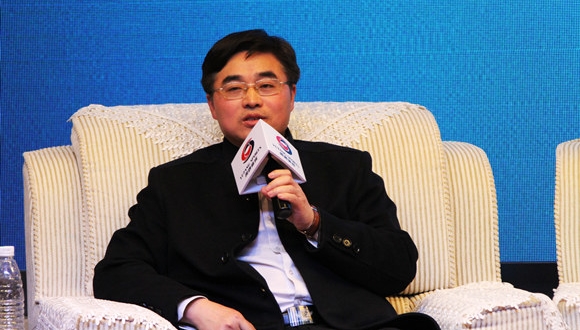Professor Yi Jiandong at a forum held by Yutang Sports
“China is facing a lack of talents in sports operation and management. Although there are thousands of graduates from sports universities every year, the industry is developing much more rapidly than expected.” stated sports industry analyst Yi Jiandong, a professor at Beijing Sport University and Peking University.
According to Professor Yi’s remarks, in the United States, the number of sports employees (about 3.2 million) accounts for 2.1 % of the total number of employees (about 155 million). The sports economy plays an important part in their national economic development. It is worth noting that there are about 900 universities offering sports-related majors. Every year, well-equipped students graduate from those universities, and enter the industry to become sports coaches, pro players, sports reporters or venue operation managers. All of this ensures the sustainable development of the American sports market.
“In contrast, China is at the very beginning of its sports development. The biggest obstacle is that people don’t know how to find a job in the industry. There are about 30 customised sports employment search sites in the USA, while it’s not the situation in China.” Yi added.
Since the launch of Guideline No. 46, which aims to boost the Chinese sports industry, as many as 300,000 employees have moved into this industry from other sectors. However, it still cannot meet the increasing needs for sports talents.
Chinese sports experts speculate that China needs at least 10 million sports talents, to reach the 5-trillion target for the sports industry by 2025. Therefore, colleges and training institutes ought to become the right places for sports talent spotting and development.
Against this background, some Chinese universities have launched sports programs for those who want to pursue a sports career. For example, candidates can now apply for a sports-related MBA at Peking University or an EMBA at the China University of Political Science and Law.
In addition to this, sports companies are clamouring to provide more opportunities for young Chinese people. Shankai Sports CEO Feng Tao, an experienced practitioner in event operation, believes that a qualified sport talent should know about the industry, be able to negotiate with foreigners and have good health.
Alisports, the sports arm of Chinese e-commerce giant Alibaba, is looking to turn itself into an event platform. Under their personnel training system, employees are able to engage in each stage of an event. Also, they are exposed to all sports event rules, operation skills and local culture in their daily work. As well as this, they will be able to learn from top teams about international practice.
As Lei Zhenjian, CEO of Le Sports, said, “For me, human resources(HR) are the most important part of culture industries, especially the sports industry.” In April, the sports company raised RMB8 billion from investors in Series B fund raising, making the company valuation soar to RMB21.5 billion.
“That’s why in the past, I have been making efforts to form up a strong team. We have great expectations for those who share our beliefs in this new era. That’s what really matters for us. ” Lei added.
Proofread by Sean O Diobhilin.
